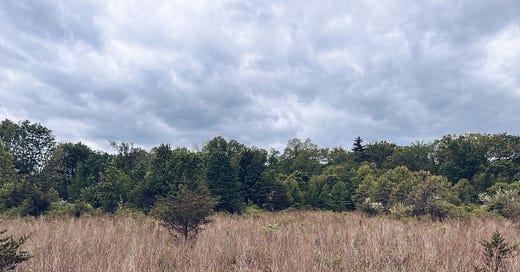Maybe you noticed and maybe you did not, but I haven’t written here in over a month.
I had a newsletter written and ready to go on May 9 — a Tuesday, when I normally post — but I moved back to New York that week and there was cat transportation to manage and a car on a trailer and a U-box that needed to be unpacked; I left my laptop on the plane; I was tired; I was happy to be back in this place that feels like home and nesting is my favorite past-time.
So, I didn’t publish it.
The next week, there was more nesting and I hired an editor to help me restructure my book so I could start making progress on the thing that’s been stuck inside me for three years. Then the peonies started blooming and there were friends to be made and then it was June and I don’t know. Time just went on and writing here got thrown into the box that I don’t open or talk about or even look at, but which I also think about all the time. No one mentioned it which was a relief but also a presence.
Like anything I th…



